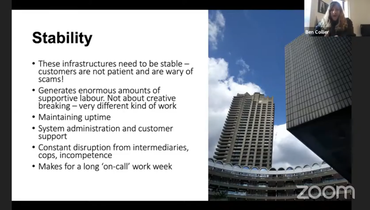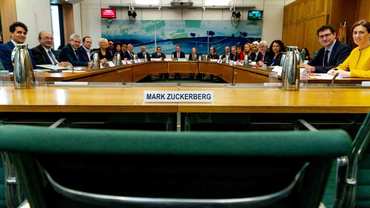Build back
 In my lifetime there has never been a New Year that has looked so bleak. At 11pm last night, Big Ben tolled the final severance of the UK's participation in the European Union. For the last few days, as details of the trade agreement agreed last night become known, Twitter has been filling up with graphics and text explaining the new bureaucracy that will directly or indirectly affect every UK resident and the life complications still facing the 3 million EU citizens resident in the UK and the UK expatriates in the EU. Those who have pushed for this outcome for many years will I'm sure rejoice, but for many of us it's a sad, sad moment and we fear the outcome.
In my lifetime there has never been a New Year that has looked so bleak. At 11pm last night, Big Ben tolled the final severance of the UK's participation in the European Union. For the last few days, as details of the trade agreement agreed last night become known, Twitter has been filling up with graphics and text explaining the new bureaucracy that will directly or indirectly affect every UK resident and the life complications still facing the 3 million EU citizens resident in the UK and the UK expatriates in the EU. Those who have pushed for this outcome for many years will I'm sure rejoice, but for many of us it's a sad, sad moment and we fear the outcome.
The bright spot of the arriving vaccines is already being tarnished by what appears to be a panic response pushing to up-end the conditions under which they were granted an emergency license. Case numbers are rising out of control, and Twitter is filled with distress signals from exhausted, overwhelmed heath care workers. With Brexit completed and Trump almost gone, 2021 will be a year of - we hope - renewed sanity and sober remediation, not just of the damage done this year in specific but of the accrued societal and infrastructural technical debt that made everything in 2020 so much worse. It is already clear that the cost of this pandemic will be greater than all the savings ever made by cuts to public health and social welfare systems.
Still, it *is* a new year (because of human-made calendars), and because we love round numbers - defining "round" as the number of digits our hands happen to have - there's a certain amount of "that was the decade" about it. There is oddly less chatter about the twenty years since the turn of the millennium, which surprises me a bit: we've completed two-fifths of the 21st century!
Even the pre-pandemic change was phenomenal. Ten years ago - 2010 - was when smartphones really took off, pouring accelerant on Facebook, Twitter, and other social media, which were over-credited for 2011's "Arab Spring" ("useful but not sufficient", the linked report concludes). At Gikii 2019, Andres Guademuz described this moment as "peak cyber-utopia". In fact, it was probably the second peak, the first having been circa 1999, but who's counting? Both waves of cyber-utopianism seem quaint now, in the face of pandemic-fueled social and economic disruption. We may - we do - look to social media for information - but we've remembered we need governments for public health measures, economic support, and leadership. The deliberate thinning of the institutions we now need to save us in countries like the US and UK is one legacy of the last 30 years of technology-fueled neoliberalism. Ronald Reagan, US president from 1980 to 1988, liked to say that the most frightening words in the English language were "I'm from the government and I'm here to help". Far more frightening is the reality of a government that can't, won't, or chooses not to help.
Twenty years ago - 2000 - was the year of the dot-com peak, when AOL disastrously merged with Time-Warner. The crash was well underway when 9/11 happened and ushered in 20 years of increasing surveillance: first an explosion of CCTV cameras in the physical world and, on the Internet, data retention and interception, and finally, in the last year or so, the inescapability of automated facial recognition, rolled out without debate or permission.
Despite having argued against all these technologies as they've come along, I wish I could report that investing in surveillance instead of public health had paid dividends in the Year of Our Pandemic 2020. Contact tracing apps, which we heard so much about earlier in the year, have added plenty of surveillance capabilities and requirements to our phones and lives, but appear to have played little part in reducing infection rates. Meanwhile, the pandemic is fueling the push to adopt the sort of MAGIC flowthrough travel industry execs have imagined since 2013. Airports and our desire to travel will lead the way to normalizing pervasive facial recognition, fever-scanning cameras, and, soon, proof of vaccination.
This summer, many human rights activists noted the ethical issues surrounding immunity passports. Early in the year this was easy pickings because the implementations were in China. Now, however, anyone traveling to countries like Canada and the US must be able to show a negative covid test within 72 hours before traveling from the UK. Demand for vaccination certificates is inevitable. Privacy International taken the view that " Until everyone has access to an effective vaccine, any system requiring a passport for entry or service will be unfair." Being careful about this is essential, because unfairness entrenched while we rebuild will be *very* hard to dislodge.
So, two big things to work towards in 2021. The first is to ensure that new forms of unfairness do not become the new normal. The second, which will take a lot of luck, even more diligence, and a massive scientific effort, is to ensure that one item on the Mindset list of 2040's 18-year-olds will be "There has never been a pandemic."
Happy new year.
Illustrations: New year's eve fireworks in London, 2014 (via Clarence Ji).
Wendy M. Grossman is the 2013 winner of the Enigma Award. Her Web site has an extensive archive of her books, articles, and music, and an archive of earlier columns in this series. Stories about the border wars between cyberspace and real life are posted occasionally during the week at the net.wars Pinboard - or follow on Twitter.


